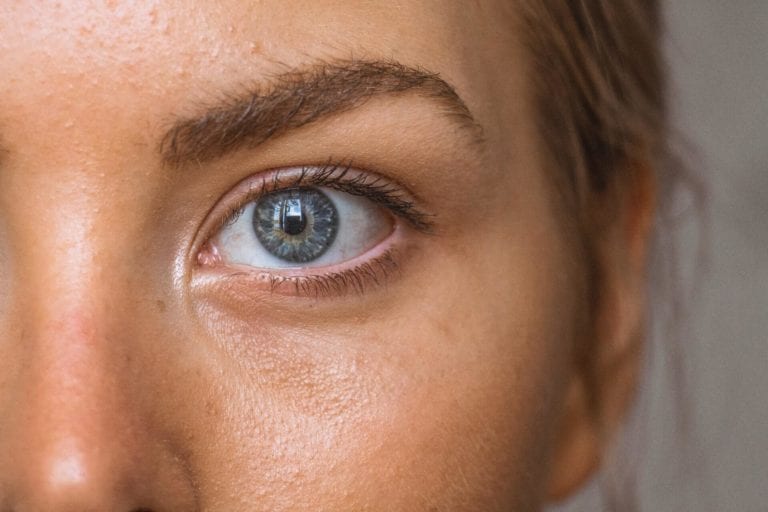It’s great to find a weight-loss method that causes the pounds to come off quickly. Unfortunately losing weight can cause skin to loosen and sag in spots. It’s a common problem, but not all strategies for losing weight result in this new problem. A question that is commonly asked is does intermittent fasting tighten the skin? It comes from rumors suggesting that there is solid research to back this thinking. This is an exciting bit of news that makes it even more important to get the facts. Let’s take a deeper look at what scientific research and legitimate studies have to say about it.
Does intermittent fasting tighten skin?
According to Nicola Luigi Bragazzi and fellow researchers, intermittent fasting is beneficial for the skin; it can tighten the skin and give it a younger appearance. It reduces the metabolites that lead to aging skin, wrinkles and sagging. Other research confirms that when done correctly, restricting calories through intermittent fasting helps skin cells to regenerate more effectively, and wrinkles begin to smooth giving your skin a more youthful appearance.
How does the skin tightening process work?
Restricting your caloric intake for periods of time has a positive effect on the complicated processes that take place in the body. Studies conducted show a link between calorie restriction and an increase in the amount of stem cells that your body produces. These cells are big factors in boosting the health as well as the growth of body cells, including your skin. Intermittent fasting that is combined with other healthy habits can set you up for success in building stronger and more elastic skin cells for improvement in wrinkles and sagging skin. Greater elasticity helps your skin to snap back faster.
How does dry fasting tighten skin?
The principle behind dry fasting is that it has been proven to help shrink the cells. If you have saggy skin from weight loss, shrinkage amounts to tightening. While this is good news, the importance of sticking to a well-orchestrated plan for dry intermittent fasting can’t be overemphasized. You don’t want to crash from going straight into extreme dry fasting if your body isn’t already used to it. It’s best to start with a less extreme 16:8 schedule of going dry, then advance over time to the more intense 20:4 schedule.
Dry fasting enhances autophagy
The cell renewal process is called autophagy. Your body does it naturally. Aging or damaged cells, sometimes part of the cells are removed then replaced with new skin cells. It’s a type of skin housekeeping that results in the removal of old dead cells that collect in your mattress and pillows over time. Dry fasting with no caloric intake or fluids increases this housekeeping effect by stimulating the process to kick into overdrive. Although studies have to yet confirm this belief, it’s suspected that dry fasting can be up to three times more effective for stimulating autophagy. Any food or liquid consumption results in resources being directed towards metabolism, but giving your body a rest from these activities allows the focus of these resources and powerful processes to shift towards cell regeneration. When combined with the proven advantages of intermittent fasting, going dry is like giving an already effective method a huge boost.
Intermittent Fasting for your skin
Does intermittent fasting tighten skin? The benefits of intermittent fasting for your skin are proven through legitimate scientific studies that prove your body is at its peak potential for rebuilding damaged skin cells. This is why so many people are trying to lose weight using this method. You reap a dual benefit of improving your skin cells to reduce the amount of sagging and wrinkles while you continue to lose weight, or in some cases, simply maintain a healthy body weight if you’ve already reached your weight goals.
Not everyone who practices intermittent fasting does so to lose weight. Some just enjoy the extensive health benefits. To enjoy the maximum degree of skin tightening from intermittent fasting, it’s important to be disciplined and be aware of other factors that can improve the health of your skin. You don’t want to undo all of the positive things by engaging in a lifestyle that interferes with your body’s ability to regenerate and renew. Here are a few tips to help you achieve the greatest possible level of success.
Adhere to intermittent fasting guidelines with caloric restrictions then feeding at the recommended times
Stick to the intermittent fasting diet without deviation. Even a few derails can throw off the complex processes of the body and lessen the benefits of your fast.
Avoid consuming alcohol, tobacco, and other unhealthy foods
When it comes to skin health, drinking alcohol, smoking cigarettes ( does smoking break a fast? ), or eating foods loaded with toxins can cause cell oxidization. This makes the housekeeping tasks of autophagy less effective and it can lead to damage to your skin cells, wrinkles, and saggy skin.
Protect the skin from UV exposure
UV rays cause the skin to age, sometimes prematurely. They’re destructive and it makes your body’s housekeeping job a lot harder and less effective. Protecting your skin from intense sunlight exposure combined with intermittent fasting can keep the tightening process rolling at a faster rate without interruption.
Follow a healthy skincare regimen of cleansing and moisturizing
As your body removes the damaged skin cells, they can collect in small amounts in the pores. Use a good skincare regimen to take them away and let your skin breathe. Cleansing and moisturizing the skin will help to speed the process of regeneration, but use products that are natural and without potentially harmful toxins.
Get plenty of sleep
Your body goes into a housekeeping mode after you fall asleep. This is when the greatest work is done. Your body makes the necessary repairs and regenerates most of the new cells made during this period of time when you’re in a deep sleep. You need to get an adequate amount of sleep to complement your intermittent fasting to reap the full benefits.
If you want to find out how to make Intermittent Fasting much easier, check out this post.

